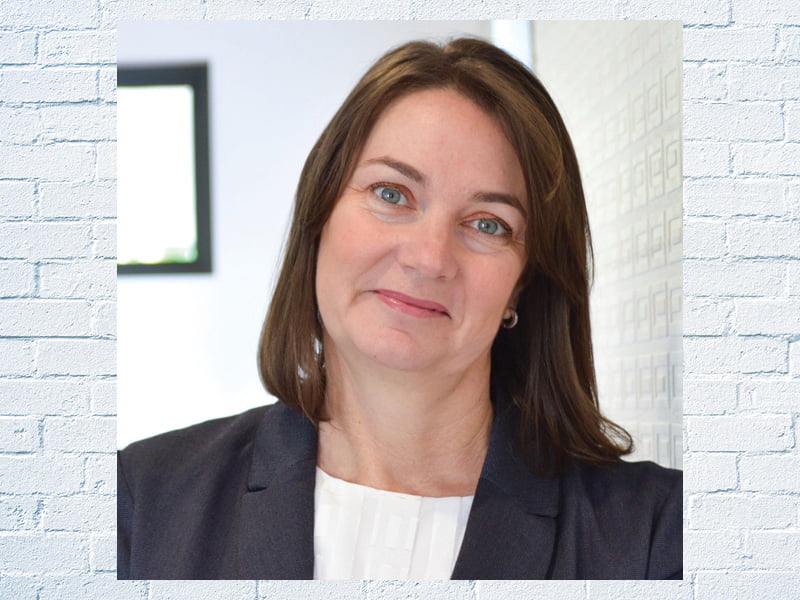There have been numerous headlines in recent years about poorly constructed residential buildings and the resulting fallout for owners and residents. Among the most notorious were the 2014 fire at the Lacrosse Tower in Melbourne and the Christmas Eve 2018 evacuation of the Opal Tower in Sydney’s Olympic Park when cracks suddenly appeared and doors became jammed.
In response to these and other incidents federal and state governments are moving to impose tighter regulation on the industry. Bronwyn Weir, Director of Weir Legal and Consulting and a specialist in government regulation, says legislation and enforcement are critical but alone they will not solve the problem, because in some cases there will be insufficient resources to oversee and enforce legislation.
Ms Weir co-authored the seminal report Building Confidence: Improving the effectiveness of compliance and enforcement systems for the building and construction industry across Australia with Professor Peter Shergold, the chancellor of Western Sydney University and former secretary of the Department of the Prime Minister and Cabinet.

Ms Weir will speak at InnovationAus’ Building Reforms 2021 – The Quality Conversation webinar on 27 April to discuss industry perspectives on the impending changes.
“I absolutely think that governments need to regulate better but there’s a balance to be found,” she says. “We need to rely on practitioners and industry associations to hold themselves to account, and to find ethical capacity that isn’t there at the moment.
“We can’t have a regulator on every building site during the construction, we just don’t have the capacity in the system for that level of oversight. So … we actually have to improve the competency and integrity of individuals, so they will perform better and produce more compliant buildings without having to be told to do so by a regulator at every turn.”
She told an ABC Four Corners program in August 2019 that there had been lack of oversight and “lack of competency, and sometimes, a lack of integrity,” in the building industry.
Legislation coming, slowly
Ms Weir told InnovationAus regulation is coming, but progress is slow. “There’s certainly a lot of noise, a lot of discussion, a lot of focus on the issues and the problems, a lot of talk about how to fix them.”
Victoria, for instance, has a Building Reform Expert Panel that is doing a holistic review and making recommendations to government.
This panel has just called for submissions regarding a framework for reform and improvements to Victoria’s building system. One of the key focus points of the panel is to protect consumers and improve confidence in the industry and regulators.
Changes resulting from the review will start to be implemented this year, but will take two years to culminate in a new Building Act in 2023.
Positive developments
In a further sign that progress is being made, Weir cited the work of the Australian Building Codes Board (ABCB), a joint initiative of all three levels of government formed in 1994. It is responsible for the development of the National Construction Code (NCC), which governs the construction of residential buildings in Australia.
“The ABCB team is creating, through extensive consultation, packages of work that the states and territories can have regard to when they introduce reforms,” Weir said.
“It was a fabulous decision of the ministers to create a resource in the ABCB, but it means they need to be allowed to do that, and to produce model guidance, model frameworks and so forth, which the states will hopefully use to undertake the reforms and implement any recommendations … they intend to implement.”
It is the Weir and Shergold Building Confidence Report – published in February 2018 with 24 recommendations designed to boost and enforce compliance with construction rules – which has helped underpin the ABCB’s approach.
The report was commissioned by the Building Ministers’ Forum (now the Building Ministers’ Meeting) comprising federal, state and territory ministers responsible for building and construction, in response to the Lacrosse Tower fire.
Digital transformation will drive competence
Boosting integrity and competence without close oversight might be difficult, but ‘survival of the fittest’ under the pressure of new legislation and digital transformation imperatives, could likely kill off smaller, less competent and less ethical players, especially opportunistic newcomers.
The Government in NSW has already significantly beefed up oversight of the construction industry with the appointment of David Chandler as NSW Building Commissioner and two pieces of legislation: the Residential Apartment Buildings (Compliance and Enforcement Powers) Act 2020, which came into force in September 2020, and the Design and Building Practitioners Act 2020 (D&BP Act), which comes into force on 1 July 2021.
In a January 2021 LinkedIn article, Mr Chandler said, to successfully navigate the landscape created by the new legislation, “construction professionals will need polish up their formal qualifications. They will also need to become digital ready…the digital construction market will be a game changing space from here on.
“An immature organisation will take at least five to seven years to invest in [and] reach a level of demonstrable, predictable maturity and stability.”
The InnovationAus webinar Building Reforms 2021 – The Quality Conversation, will dive into the industry’s perspectives on the impending changes. Weir will be joined by Professor Chris Bulmer, CEO, Institute of Quality Construction and CEO of Greenwich Associates, Ms Carrie Metcalfe, partner at Minter Ellison and Mr Andrew Hall, executive director and CEO, Insurance Council of Australia, alongside moderator and InnovationAus publisher, Corrie McLeod.
You can register for the webinar here.
This article has been published as part of the Building Reforms 2021 – The Quality Conversation powered by Procore.
Do you know more? Contact James Riley via Email.
